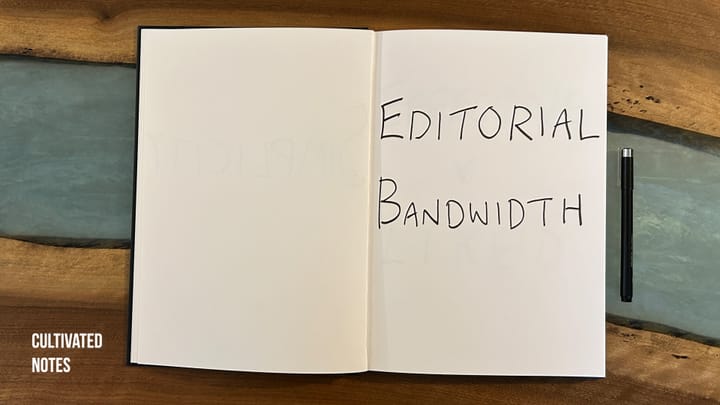Time Speak
Time Speak is a simple communication habit: say what you’ll do and when. Why tying words to time builds trust, clarity, and accountability in teams.

Editor’s note: This essay sits within the Cultivated library on communication, trust, and work in practice. Time Speak is explored as a simple behavioural contract that builds clarity, accountability, and reliability in teams.
Time Speak
I was fresh out of university, back in Leeds, working on school administration software.
We were given a training budget and boarded a coach south, ending up at Blenheim Palace for a customer service programme with Mary Gober International.
One technique stuck.
Decades later, I still use it daily.
Time Speak.
Why Commitments Matter
One of my core behaviours is simple: do what you say you will.
If you commit, deliver.
If you cannot, communicate early and honestly.
Trust is built through kept commitments.
It breaks through vague promises and quiet delays.
Time Speak makes commitment visible.
What Is Time Speak?
Most people tell you what they will do.
Time Speak adds when.
- Weak: “I’ll call you back.”
- Better: “I’ll call you back this week.”
- Best: “I’ll call you back on Thursday at 11am — does that work?”
That small shift turns intention into a contract.
Even if you have no new information or new updates, you still honour the time commitment.
You call. You update. You keep the promise.
Why Time Speak Works
It shows respect.
You plan around someone else’s life.
It creates accountability.
Specific times remove escape routes.
It builds discipline.
You must think before you commit.
It encourages bravery.
You learn to say no — and propose what you can do.
Time Speak in Action
Someone asks for a major presentation by Wednesday.
You know it is unrealistic.
Instead of over-promising:
“I can’t do Wednesday — the work required is too large. I can deliver by Thursday at 4pm.”
That clarity builds trust.
It signals reliability, not recklessness.
Expecting Time Speak From Others
Once you adopt Time Speak, you notice its absence.
A service agent once told me they would call back “next week.”
I asked for a day and time. They gave one — and called exactly then.
People often can commit.
They simply haven’t been taught to.
Time Speak raises the standard for everyone.
Lessons From High-Performing Companies
Great delivery companies do not say, “Your parcel will arrive soon.”
They give you a window. Sometimes an hour.
Specificity builds trust.
Reliability compounds it.
The same applies at work:
- Not “I’ll send it later.”
- But “I’ll send it by Friday at 2pm.”
Then deliver.
Trust Is Earned in Time
Respect should be default.
Trust is earned through behaviour.
Time Speak turns words into time-bound promises.
It makes you clearer, more dependable, and more professional.
Practising Time Speak
Start small.
Replace “soon” with a date and time.
Honour the commitment, even if nothing has changed.
Propose realistic deadlines when requests are unreasonable.
Encourage others to do the same.
Clarity scales.
Final Word
That day at Blenheim gave me many tools.
Time Speak is the one I carried into every role, every team, every project.
It is more than a technique.
It is a way of being.
Tie your words to time.
Then deliver.
That is how trust is built.
This piece forms part of Cultivated’s wider body of work on how ideas become valuable, and how better work is built.
To explore further:
→ Library — a curated collection of long-form essays
→ Ideas — developing thoughts and shorter writing
→ Learn — practical guides and tools from across the work
→ Work with us — thoughtful partnership for teams and organisations


